Paris 2024 Olympic Games Free Bets & Betting Offers
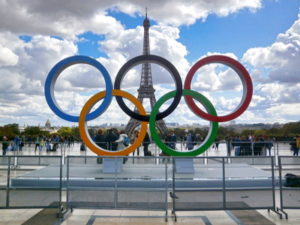 The modern Olympic Games, sometimes just referred to as the Olympics, is known as being the ‘Greatest Show On Earth’. It is the event that is often the culmination of an athlete’s year if not their career as a whole, being the pinnacle of numerous different sporting disciplines. Controlled by the International Olympic Committee, it is split into Summer and Winter Olympics, with the Summer Olympics being the one that we’re going to look at here.
The modern Olympic Games, sometimes just referred to as the Olympics, is known as being the ‘Greatest Show On Earth’. It is the event that is often the culmination of an athlete’s year if not their career as a whole, being the pinnacle of numerous different sporting disciplines. Controlled by the International Olympic Committee, it is split into Summer and Winter Olympics, with the Summer Olympics being the one that we’re going to look at here.
When the first modern Olympic Games took place in 1896 around 250 men from 14 countries took part in 42 different competitions. By 2024 that had grown to more than 10,500 competitors of both sexes from 206 countries taking part in 329 medal events (32 sports, 48 disciplines) . For that reason this page will be more of a general look at the Summer Olympics as a whole rather than a specific look at each individual discipline. Despite only five nations in Australia, Great Britain, France, Switzerland and Greece having taken part in every Olympics to date, it is the United States Of America that leads the way in the all-time medal table.
Generally Olympic events don’t attract much attention from bookies but the one exception is the summer games where you can expect to find some good promotions for the bigger events and athletes. You can save some time looking around for the best value as we’ve collated the top deals on this page. Further down you can find information about the games.
Summer Olympics Betting Offers for 2024
This event has not started yet, please check back nearer the time. For other offers see our main loyalty page.
Can You Bet On Amateur Sports?
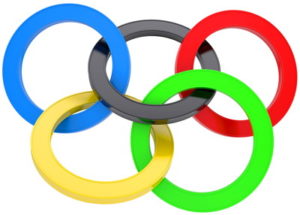 Olympic events are for the most part amateur events, for example, professional boxers cannot compete. This isn’t completely true as some professionals do compete, such as footballers and tennis players, but by and large Olympic events are contested by amateur sportsmen and women.
Olympic events are for the most part amateur events, for example, professional boxers cannot compete. This isn’t completely true as some professionals do compete, such as footballers and tennis players, but by and large Olympic events are contested by amateur sportsmen and women.
If you’ve ever tried to bet on amateur sports you often find it is difficult to find markets. To belay a myth it very much is possible to bet on amateur sports, its just that bookies rarely offer markets. This is partly driven by the fact that amateur sports are less robust, they don’t have a professional code and are potentially more open to fixing and abuse.
The Olympics is different, however, this is the one amateur sports event that is heavily regulated and watched in incredible detail. Betting companies, therefore, have more trust in the integrity of Olympic events meaning you can find markets on most of the major sports and sportspeople.
It really is worth shopping around though as odds can vary far more widely for amateur sports compared to professional, largely because there is less prior data on which to calculate form, therefore, bookies often err on the side of caution and have big margins. You can find a lot of added value if you are willing to do your homework.
The Format Of The Olympics
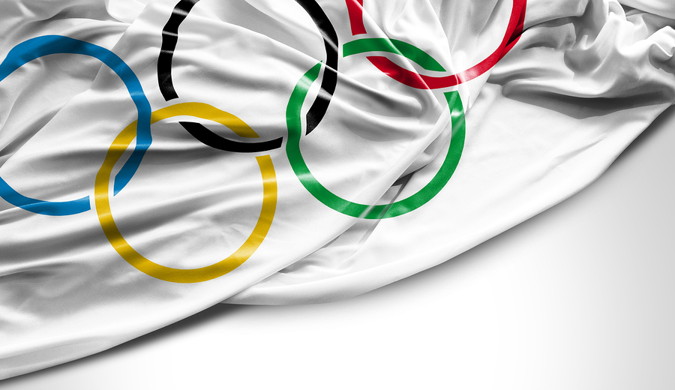
It’s not easy to explain the format of the Olympic Games for the simple reason that each sport and discipline has its own format that it adheres to. There are different federations that control the sports, which all come under the umbrella organisation of the Association of Summer Olympic International Federations.
Qualification
 Perhaps somewhat unsurprisingly, it is just as difficult to talk about qualification as it is to talk about the format of the tournament, mainly because the qualification rules for the various Olympic sports are determined by the International Sports Federation that governs the individual events.
Perhaps somewhat unsurprisingly, it is just as difficult to talk about qualification as it is to talk about the format of the tournament, mainly because the qualification rules for the various Olympic sports are determined by the International Sports Federation that governs the individual events.
That being said, it is possible to talk in a general manner about the qualification criteria for various events. Competitors are usually able to qualify by reaching a certain place in one of the international events that is on the International Federation’s ranking list. Generally speaking, each nation can put forward up to three competitors per event. If more than three have achieved the necessary qualification criteria then the National Olympic Committees for each country will decide who qualifies.
Obviously the one area in which this does not apply is in team sports, where the necessary number of people to make up the team or squad can qualify. Only one team per nation can be put forward and it’s common for continental qualifying tournaments to be used to decide upon the teams in each discipline.
The Categorisation Of Sports
| Category | Sports |
|---|---|
| A | Athletics, Gymnastics, Aquatics |
| B | Basketball, Football, Volleyball, Tennis, Cycling |
| C | Rowing, Judo, Shooting, Archery, Table Tennis, Badminton, Weightlifting, Boxing |
| D | Field Hockey, Taekwondo, Canoeing / Kayaking, Fencing, Handball, Equestrian, Triathlon, Wrestling, Sailing |
| E | Golf, Rugby, Modern Pentathlon |
| F | Baseball, Karate, Skateboarding, Sport Climbing, Surfing |
The various sports that are played during the Summer Olympics are typically divided into one of six different categories based on their popularity. In terms of deciding how popular something is there are six criteria used, which are as follows:
- Television Viewing Figures (40%)
- Internet Popularity (20%)
- Public Surveys (15%)
- Ticket Requests (10%)
- Press Coverage (10%)
- Number Of National Federations (5%)
The category that a sport is put into is important because that dictates the amount of Olympic revenue that the sport’s International Federation receives. The categories run from A to F and new sports are usually put into the bottom category for their first year. The table above shows the current rankings.
The Sports
 All told, there have been 42 sports that have been part of the Olympic Games at one point or another, with those sports spanning 55 different disciplines. Here are the sports that are currently on the Olympic roster:
All told, there have been 42 sports that have been part of the Olympic Games at one point or another, with those sports spanning 55 different disciplines. Here are the sports that are currently on the Olympic roster:
- Archery
- Artistic Swimming
- Athletics
- Badminton
- Basketball
- Boxing
- Breaking (Break Dancing)
- Canoeing / Kayaking
- Cycling
- Diving
- Equestrian
- Fencing
- Field Hockey
- Football
- Golf
- Gymnastics
- Handball
- Judo
- Karate
- Modern Pentathlon
- Rhythmic Gymnastics
- Rowing
- Rugby Sevens
- Sailing
- Shooting
- Skateboarding
- Sport Climbing
- Surfing
- Swimming
- Table Tennis
- Trampoline
- Triathlon
- Volleyball
- Water Polo
- Weightlifting
- Wrestling
As you can see from the list, there are a number of sports, such as athletics and swimming, that contain countless different disciplines within them. Swimming will include the likes of freestyle, butterfly and breaststroke events, whilst athletics can include anything from the 110 metre hurdles to the hammer throw.
Bearing that in mind should make it clear why it’s tricky to talk about every single event that is part of the Summer Olympics. Only four sports have been ever-present at the Summer Olympics, which are athletics, cycling, fencing, gymnastics and swimming.
Prizes
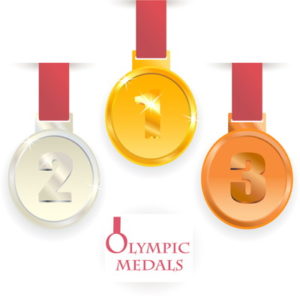 Whilst there is no specific monetary prize awarded by the IOC for winning an Olympic sport, some countries now choose to reward their athletes with bonus money. It’s also common for a sport’s International Federation to pay the athletes that will be representing them at an Olympics a wage to train, which they can supplement with money from sponsorship.
Whilst there is no specific monetary prize awarded by the IOC for winning an Olympic sport, some countries now choose to reward their athletes with bonus money. It’s also common for a sport’s International Federation to pay the athletes that will be representing them at an Olympics a wage to train, which they can supplement with money from sponsorship.
The main thing that athletes enter the Olympics for is the opportunity to win a medal. There are three available in each discipline:
- A Gold Medal for the winner
- A Silver Medal for the runner-up
- A Bronze Medal for third-place
Cassioli’s design mentioned elsewhere on this page continued to be used on the front of the medal up until 2000, with a custom design of the host city on the other side of the medal. It has changed numerous times since the turn of the millennium, not least of all because someone noticed that Cassioli original design featured a Roman amphitheatre in what was a medal recognising a Games linked the Ancient Greece.
The History Of The Summer Olympics

When considering the history of the Summer Olympics you have to decide where to draw the line, given the all-encompassing nature of the event. After all, its creation was inspired by the Ancient Olympic Games that was originally a festival for Zeus in Ancient Greece, with the first one generally considered to have taken place in 776 BC. The modern day Games were the creation of Pierre de Coubertin, who wanted to promote the idea of international understanding through the use of sporting competition.
de Coubertin used the Wenlock Olympian Society Annual Games as the inspiration for his new event. The Wenlock Olympic Games had been held annually in Shropshire, England since 1850 and therefore offered plenty of history for the Frenchman to work with. He began to devise his plan in 1894 and it took two years for it to come to fruition, eventually seeing the new competitive event get underway in Athens in 1986. 245 competitors, of which 200 or more were Greek, took part in the inaugural version of what would go on to become one of sport’s most important events.
The First Olympiad Proves A Success
 The inaugural Games of the Olympiad was only open to men, in spite of the protest of Stamata Revithi who ran the marathon course on her own, and took place between the 6th and the 15th of April in 1896. Whilst the number of countries that sent competitors along was somewhat limited at 14, more than 100,000 people watched the opening ceremony. In something of a signal of what was to come later, the United States Of America finished with the most winners with 11, just one ahead of the Greeks.
The inaugural Games of the Olympiad was only open to men, in spite of the protest of Stamata Revithi who ran the marathon course on her own, and took place between the 6th and the 15th of April in 1896. Whilst the number of countries that sent competitors along was somewhat limited at 14, more than 100,000 people watched the opening ceremony. In something of a signal of what was to come later, the United States Of America finished with the most winners with 11, just one ahead of the Greeks.
No sporting event in history had enjoyed the same international participation as the debut Olympic Games. The organisers as well as the Greek public were enthused by the event, with the athletes enjoying it so much that they insisted that the newly formed International Olympic Committee declare Athens to be the permanent home of the tournament. They declined, selecting Paris as the host city for the 1900 Games, but the overall experience had been good enough to encourage both athletes and organisers to carry on with the new event.
The Games Grow And Grow
 In 1900 the Summer Olympics saw Paris welcome more than four times the number of athletes, including some women taking part in certain sports for the first time. Their participation was limited to golf, sailing, croquet and tennis, but it was the start of radical change in sporting perceptions. Unlike the inaugural games, which lasted for ten days, the second version lasted for five months thanks to its link to the Paris World’s Fair that was taking place at the time. There is still some debate about which events were actually part of the Olympics, given that none of them said that they were at the time.
In 1900 the Summer Olympics saw Paris welcome more than four times the number of athletes, including some women taking part in certain sports for the first time. Their participation was limited to golf, sailing, croquet and tennis, but it was the start of radical change in sporting perceptions. Unlike the inaugural games, which lasted for ten days, the second version lasted for five months thanks to its link to the Paris World’s Fair that was taking place at the time. There is still some debate about which events were actually part of the Olympics, given that none of them said that they were at the time.
The 1904 games didn’t see as much of a growth as the one that had taken place four years earlier, largely because of the difficulty of getting to its host city of St Louis and tensions brought about thanks to the Russo-Japanese War. A smaller games took place in Athens two years later that was more successful than either of the previous Games, but they are not considered official by the IOC. It was in 1908 that the Olympics Games improved once more in popularity, with London being the host city and the marathon taking place for the first time at its standard length of just over 26 miles.
By the time that Stockholm acted as the host city in 1912 the Games had grown to its largest size yet, with more than two and a half thousand athletes taking part. One of the most successful competitors was Jim Thorpe, who won both the pentathlon and the decathlon, but he had his medals stripped from him after he played a couple of baseball games for money and Avery Brundage complained about the breach of amateurism. They were reinstated in 1983, thirty years after he died. The 1912 Games was also the first one that saw representatives from countries on all five inhabited continents taking part.
Between The Wars
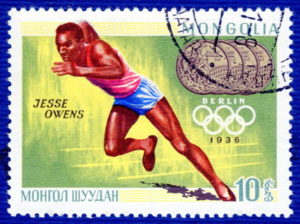 The 1916 Olympic Games was scheduled to take place but didn’t because of the outbreak of the Great War. When it did return in 1920 with Antwerp as the host city, it was a much more subdued affair than in previous iterations. There were a record number of competitors taking part, but the record only stood for four years and was broken once more at the 1924 Games in Paris. More change was afoot in 1928 when female athletes were allowed to take part in track and field events for the first time.
The 1916 Olympic Games was scheduled to take place but didn’t because of the outbreak of the Great War. When it did return in 1920 with Antwerp as the host city, it was a much more subdued affair than in previous iterations. There were a record number of competitors taking part, but the record only stood for four years and was broken once more at the 1924 Games in Paris. More change was afoot in 1928 when female athletes were allowed to take part in track and field events for the first time.
1928 was also the first Olympic Games to feature a sponsor in the form of Coca-Cola and the first to have a standardised design for the medals. Giuseppe Cassioli’s design was used and continued to be the design for the medals until 1972. The 1932 Games took place in Los Angeles and were somewhat marred by the Great Depression, but it was the following Olympics that remains one of the most controversial. Berlin was the host city and it was used by the Nazi government as a propaganda exercise. The tournament is perhaps most notable for African-American athlete Jesse Owens and his protest at Hitler and his Aryan race.
After The Second World War
 The outbreak of the Second World War meant that both the 1940 Olympics, which should have been held in Tokyo, and the 1944 Games scheduled to take place in London were cancelled. London did host the first games after the end of the War in 1948, with both Germany and Japan excluded from being invited to take part. The 1952 Olympics in Helsinki were dominated by a team from the USSR that was taking part for the first time. There remains some controversy around their success, however, as it was believed that many of the athletes were being sponsored by the state to train full-time and therefore were not truly amateurs.
The outbreak of the Second World War meant that both the 1940 Olympics, which should have been held in Tokyo, and the 1944 Games scheduled to take place in London were cancelled. London did host the first games after the end of the War in 1948, with both Germany and Japan excluded from being invited to take part. The 1952 Olympics in Helsinki were dominated by a team from the USSR that was taking part for the first time. There remains some controversy around their success, however, as it was believed that many of the athletes were being sponsored by the state to train full-time and therefore were not truly amateurs.
The 1956 Olympic Games in Melbourne is perhaps a good demonstration of the continued strained relationship between certain countries in the post-war climate. The Soviet Union had invaded Hungary before, which spilt over into the water polo team between the two nations. In 1960 Rome hosted the Games and they were notable thanks to the appearance of a young boxer named Cassius Clay. The man who would go on to become Muhammed Ali won gold, but threw his medal away later after being refused service in a whites-only restaurant. The 1964 Games were held in Tokyo and were the first to be broadcast on the TV.
Previous Olympic Games
| Year | Country | City | Number |
|---|---|---|---|
| 2032 | TBC | TBC | XXXV |
| 2028 | USA | Los Angeles | XXXIV |
| 2024 | France | Paris | XXXIII |
| 2021* | Japan | Tokyo | XXXII |
| 2016 | Brazil | Rio de Janerio | XXXI |
| 2012 | UK | London | XXX |
| 2008 | China | Beijing | XXIX |
| 2004 | Greece | Athens | XXVIII |
| 2000 | Australia | Sydney | XXVII |
| 1996 | USA | Atlanta | XXVI |
| 1992 | Spain | Barcelona | XXV |
| 1988 | South Korea | Seoul | XXIV |
| 1984 | USA | Los Angeles | XXIII |
| 1980 | USSR | Moscow | XXII |
| 1976 | Canada | Montreal | XXI |
| 1972 | West Germany | Munich | XX |
| 1968 | Mexico | Mexico City | XIX |
| 1964 | Japan | Tokyo | XVIII |
| 1960 | Italy | Rome | XVII |
| 1956 | Australia | Melbourne | XVI |
| 1952 | Finland | Helsinki | XV |
| 1948 | UK | London | XIV |
| 1944 | UK (Canceled) | London (Canceled) | XIII |
| 1940 | Japan (Canceled) | Tokyo (Canceled) | XII |
| 1936 | Germany | Berlin | XI |
| 1932 | USA | Los Angeles | X |
| 1928 | Netherlands | Amsterdam | IX |
| 1924 | France | Paris | VIII |
| 1920 | Belgium | Antwerp | VII |
| 1916 | Germany (Canceled) | Berlin (Canceled) | VI |
| 1912 | Sweden | Stockholm | V |
| 1908 | UK | London | IV |
| 1904 | USA | St Loius | III |
| 1900 | France | Paris | II |
| 1896 | Greece | Athens | I |
* Tokyo 2020 was postponed to 2021 due to the coronavirus pandemic
Olympic Records
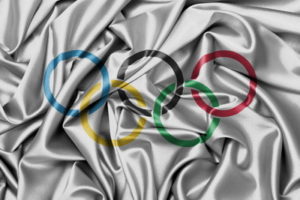 When looking at individual sports there are simply too many records to delve into here. Instead we’ll look more generally, starting with the fact that the United States of America has been the host nation for the Summer Olympic Games more times than any other country. The US has hosted the Games four times, with plans afoot for a fifth to be added in 2028.
When looking at individual sports there are simply too many records to delve into here. Instead we’ll look more generally, starting with the fact that the United States of America has been the host nation for the Summer Olympic Games more times than any other country. The US has hosted the Games four times, with plans afoot for a fifth to be added in 2028.
When Los Angeles hosts the 2028 Games it will become the city that has hosted the Olympics the joint-most times. At the time of writing, Paris has hosted the games twice, Athens and Los Angeles have also hosted twice. Tokyo will have joined that list too after hosting the games in 2020.
London sits at the top of the list, having hosted the Games three times to date. When Paris hosts the Olympics in 2024 and Los Angeles does so in 2028 they will therefore join London as being triple hosts of the Games. Tokyo would also be on the list had the outbreak of the Second World War not led to the 1940 Games being switched from there to Helsinki before eventually being cancelled altogether.
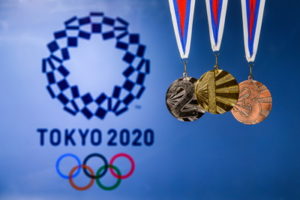 More Gold Medals have been awarded to the USA than any other country, 1063. The US have also won 837 silver and 743 bronze medals, making 2643 medals overall. The Soviet Union / Russia are a long way behind in second with 395 golds, 319 silver and 296 bronze; making 1010 total. Great Britain occupy third place with 284 gold, 315 silver, 311 bronze and 910 in total. GB will soon have to give third spot for gold medals up to China, however, who currently have 262 gold, 199 silver, 173 bronze and in 634 in total.
More Gold Medals have been awarded to the USA than any other country, 1063. The US have also won 837 silver and 743 bronze medals, making 2643 medals overall. The Soviet Union / Russia are a long way behind in second with 395 golds, 319 silver and 296 bronze; making 1010 total. Great Britain occupy third place with 284 gold, 315 silver, 311 bronze and 910 in total. GB will soon have to give third spot for gold medals up to China, however, who currently have 262 gold, 199 silver, 173 bronze and in 634 in total.
To date, four different athletes have won 9 Gold Medals, making them the second-most successful Olympians of all time. The Soviet Union’s Larisa Latynina won 9 Golds, 5 Silvers and 4 Bronze medals during her career, whilst Paavo Nurmi won 9 Golds and 3 Silvers. Mark Spitz won 9 Golds, 1 Silver and 1 Bronze in swimming, with athlete Carl Lewis having 9 Golds and 1 Silver.
All of them pale in comparison to Michael Phelps, however, with the swimmer having won 23 Golds, 3 Silvers and 2 Bronze Medals between 2004 and 2016. It’s also worth noting that technically the number of Golds don’t matter in the medal table as much as the number of medals in total, so the likes of Soviet gymnasts Nikolai Andrianov and Boris Shakhlin would be on the list before Nurmi, Spitz and Lewis.

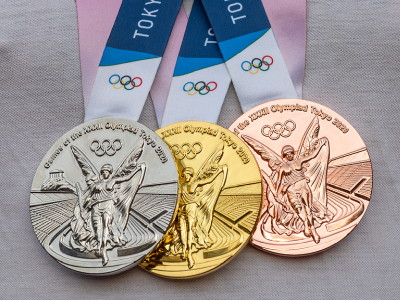 ;
; ;
;

